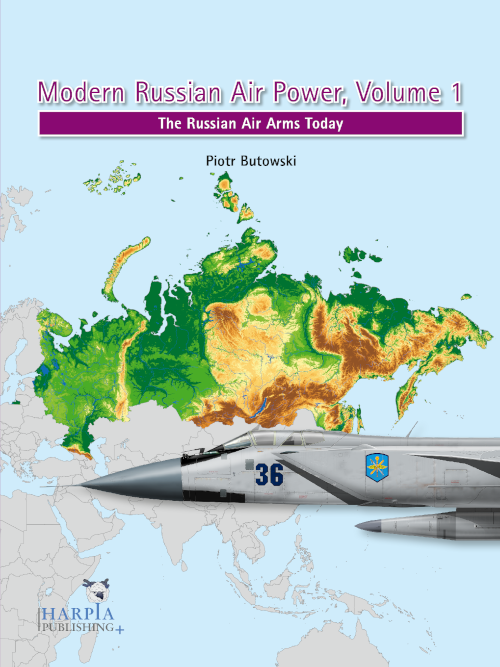-
This volume launches a new series of three books from Harpia Publishing about Russian air power. The first two volumes present all types of military aircraft currently operated by Russia, their purpose, features and characteristics. The third volume will be devoted to the Russian air arms, their evolution after 1991, use in armed conflicts, structure and assets, as well as the Russian aviation industry.
The first volume presents fighters and ground-attack aircraft, uncrewed aircraft, as well as training aircraft.
Production of the fifth-generation Su-57 fighter is ramping up slowly and only a few examples are in service. The ‘generation 4+’ Su-30, Su-34 and Su-35 multirole fighters, derivatives of the Soviet Su-27, remain the backbone of Russia’s tactical aviation. During the Russian invasion of Ukraine, veteran Su-25 attack aircraft have been used extensively. An interesting development concerns the MiG-31 interceptor, which now also serves as a sub-strategic strike aircraft and satellite interceptor. Work on Russia’s next-generation combat aircraft, including the Su-75 lightweight fighter and the MiG-41 heavy interceptor, is also described.
Russia’s large uncrewed aircraft are at an early stage of development. The Orion, the Russian equivalent of the MQ-1 Predator, has only recently entered service. The jet-powered Okhotnik UCAV is in the prototype testing stage, as is the propeller-driven Altius, a high-altitude long-endurance UAV. Only the Forpost (based on the Israeli Searcher) reconnaissance drone and the Orlan series of small UAVs are produced in significant numbers in Russia. A novelty is the Lancet loitering munition.
Russia’s military trainers comprise a mix of newly produced Russian Yak-130, Austrian DA42T and Czech L-410UVP aircraft, as well as old Soviet-era L-39Cs, An-26s, Tu-134s and others. Meanwhile, a programme to create a modern basic trainer is hindered by the lack of a suitable engine.
Along with the aircraft, this first volume presents the most important types of weapons used by them: tactical precision-guided munitions, air-to-air missiles, as well freefall bombs and unguided rockets.

